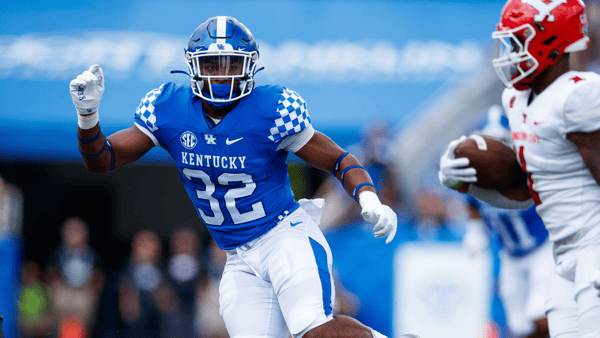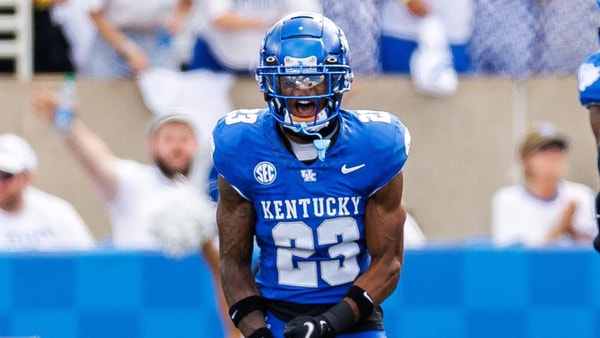Much has been written and spoken about the questionable musical choices of the generation called the Millennials. “Manufactured,” “unimaginative,” and “crass,” are just a few adjectives used to describe the aural tastes of our teens and young adults. A look at the
Billboard Top 100 for September 27, 2014, might bear this out, with songs unabashedly promoting body parts, partying, and whatever else will play to the vast middle. However, one song bucks the trend of shallowness, salaciousness, and simplicity with a stunning density of biblical and Christian ontological references. This song is, of course, Nicki Minaj’s “Anaconda.”
We’ll perform a critical analysis on both the song and the video to answer the following question: what is Minaj referring to with “Anaconda”? Many images are
NSFW, even though such prurient material is necessary for Ms. Minaj to make her grander, counterintuitive point.
http://youtu.be/LDZX4ooRsWs
What do we notice at the very outset? Scantily clad, callipygian beauties cavorting in a tropical setting that might be considered Paradise, an…Eden of sorts. Prominent images of the female posterior, often positioned within the frame so that the contours resemble an apple. (To be fair, apple-shaped behinds have appeared before in rap and hip-hop iconography, as in A Tribe Called Quest’s “Bonita Applebum”.) However, as we continue our analysis, we’ll see that Minaj is undoubtedly referring to
that apple, the Forbidden Fruit from the Tree of Knowledge in…The Garden of Eden. Minaj’s bold choices of scenery and costuming imply that the temptations of the flesh, while powerful and seemingly irresistible, must be met head-on and defeated. Later in the video, we’ll see how Minaj suggests that human beings should deal with such urges.
Discussing her first partner, Troy, Minaj refers to the hedonistic lifestyle that he–and by extension, she–led: “gun in my purse / b*tch I came dressed to kill / who wanna go first? / I had ‘em pushin’ daffodils / I’m high as hell / I only took half a pill.” While on the surface Minaj appears to be glorifying a jet-set lifestyle of drugs, designer clothes, and other elements of mammon, she has already hinted that she doesn’t work that way. Couldn’t this stanza also be interpreted as a realization that, as written in Romans 6:23, “For the wages of sin is death”? Barely a minute later, Minaj says, “he tossed my salad like his name [is]
Romaine” (emphasis mine). She could have mentioned any other type of lettuce, yet she chooses a simile including a delicious tossed Romaine salad. How much clearer could she be?

Her next romantic partner, Michael, is another dangerous character who can offer Minaj physical treats that she professes to enjoy. Again, Minaj rarely disseminates her message so obviously. She raps “[unintelligible due to sound editing] bigger than a tower / I ain’t talkin’ ‘bout Eiffel.” A tower, built to demonstrate mankind’s mastery over physical laws, that ultimately leads to confusion and disorientation: does this not sound like the Tower of Babel?
Minaj’s ingenuity doesn’t stop there. Is it simply coincidence that her lovers are named Michael and Troy? Michael, the archangel who leads the Lord’s army to victory over the forces of Satan; and Troy, the ancient Greek city whose denizen Helen was so beautiful that her husband, Menelaus, started a war after her abduction by…Paris, the French city that houses the Eiffel Tower. So in effect, Minaj
is talking about Eiffel, however obliquely. (Yes, the references to Troy and Paris are Greek mythological rather than biblical, but a person who commands such a depth and breadth of knowledge of the classics can’t restrain herself to one phylum of symbology.)
At this point it makes sense to mention the provocative dancing sprinkled throughout the video. This would seem to undermine Minaj’s message of resistance to sin. Upon closer review, though, in several of these scenes, the camera shakes and cants, as if “the earth is utterly broken, the earth is rent asunder, the earth is shaken …It shall fall and not rise again…but there shall be new heavens and a new earth…(Isaiah 24:19)” Ms. Minaj is visually stating that there are quite clearly consequences to such carnal revelry.
About three-quarters of the way into the video, Minaj suddenly becomes gratuitously vulgar and overtly sexual. The maniacal laugh, the word-salad cursing, the sinking deeper into the dark mire–but exactly when?
Immediately after she consumes the fruit! True, the forbidden fruit in this instance isn’t an apple (would you prefer she hand you her message on a plate, or perhaps on a shirt that reads “Butt”?), but Minaj is hardly so straightforward in her references. Given that she showcases bananas, a pineapple, lemons, and an entire fruit medley, she’s likely saying that the forbidden fruit comes in many flavors.
The last sequences of the video, however, contain the most cryptic but also the most powerful messages. A man sits in a poorly lit, bare room (Spartan?) furnished with only a simple chair. A woman who appears to be Minaj crawls towards him, and proceeds to tempt him with an erotic dance. His will is strong but his body is weak, as he tries not to succumb to her gyrations. Was he successful? We do not find out, but he does

slump forward in his chair, disgusted by his sin of Lust, and joins his hands in prayer. But the night is darkest just before the dawn, and we should have learned by now that Minaj’s lyrics are neither explicit nor pessimistic. This Everyman, purposely unidentified though vaguely Canadian so that we may identify with him, wears a shirt whose sleeve reads “61 X,” a seemingly inscrutable inscription. However, the English letter “X” is a derivation of the Greek Chi (visually, “X”), a symbol used to invoke the name and idea of Jesus Christ. Now imagine “61 X” written on a pane of glass. Turn the pane around, and it now reads “X 16.” This is undoubtedly a reference to John 3:16, the most quoted passage of the New Testament. Using herself as temptation and our shadowed Everyman as temptee, Minaj seems to say that even
she could succumb to the forbidden pleasures of the flesh, and expresses her belief that acceptance of Christ is the path to salvation. (Also note that shadows figure strongly in this dyadic dance scene, indicating a stark difference between the reality of the unenlightened and those who have seen the light. Another nod to the Greeks with Plato’s Allegory of the Cave.)
This detailed analysis of the visual and lyrical aspects of Nicki Minaj’s “Anaconda” leaves no doubt that the creature in question is the Serpent, who, unable to achieve the Fall of Man, instead strives for the fall of men. “Anaconda” bursts with biblical references, unafraid to challenge its listeners to dig deeply and decode Minaj’s complex ruminations on temptation, the origin of sin, and the nature of redemption. Good on Ms. Minaj for not resorting to unimaginative, lazy, thinly-veiled sexual metaphors foisted upon an impressionable crowd. Whether it be layering her song with biblical themes or peppering it with Greek mythology, “Anaconda” entices our youth to listen
and learn.
For other analyses of popular songs & videos, try these links:
Tasting the Goods: A Brief Psycho-Social Analysis of Kelis’s “Milkshake”
They Taught Us How to Dougie: How Cali Swag District’s “Teach Me How to Dougie” Invites Everyone to the Party
Deconstructing the Juggalo: Message and Meaning in Insane Clown Posse’s Riddle Box
Follow me on twitter
@MattShorr Her next romantic partner, Michael, is another dangerous character who can offer Minaj physical treats that she professes to enjoy. Again, Minaj rarely disseminates her message so obviously. She raps “[unintelligible due to sound editing] bigger than a tower / I ain’t talkin’ ‘bout Eiffel.” A tower, built to demonstrate mankind’s mastery over physical laws, that ultimately leads to confusion and disorientation: does this not sound like the Tower of Babel?
Minaj’s ingenuity doesn’t stop there. Is it simply coincidence that her lovers are named Michael and Troy? Michael, the archangel who leads the Lord’s army to victory over the forces of Satan; and Troy, the ancient Greek city whose denizen Helen was so beautiful that her husband, Menelaus, started a war after her abduction by…Paris, the French city that houses the Eiffel Tower. So in effect, Minaj is talking about Eiffel, however obliquely. (Yes, the references to Troy and Paris are Greek mythological rather than biblical, but a person who commands such a depth and breadth of knowledge of the classics can’t restrain herself to one phylum of symbology.)
At this point it makes sense to mention the provocative dancing sprinkled throughout the video. This would seem to undermine Minaj’s message of resistance to sin. Upon closer review, though, in several of these scenes, the camera shakes and cants, as if “the earth is utterly broken, the earth is rent asunder, the earth is shaken …It shall fall and not rise again…but there shall be new heavens and a new earth…(Isaiah 24:19)” Ms. Minaj is visually stating that there are quite clearly consequences to such carnal revelry.
About three-quarters of the way into the video, Minaj suddenly becomes gratuitously vulgar and overtly sexual. The maniacal laugh, the word-salad cursing, the sinking deeper into the dark mire–but exactly when? Immediately after she consumes the fruit! True, the forbidden fruit in this instance isn’t an apple (would you prefer she hand you her message on a plate, or perhaps on a shirt that reads “Butt”?), but Minaj is hardly so straightforward in her references. Given that she showcases bananas, a pineapple, lemons, and an entire fruit medley, she’s likely saying that the forbidden fruit comes in many flavors.
The last sequences of the video, however, contain the most cryptic but also the most powerful messages. A man sits in a poorly lit, bare room (Spartan?) furnished with only a simple chair. A woman who appears to be Minaj crawls towards him, and proceeds to tempt him with an erotic dance. His will is strong but his body is weak, as he tries not to succumb to her gyrations. Was he successful? We do not find out, but he does
Her next romantic partner, Michael, is another dangerous character who can offer Minaj physical treats that she professes to enjoy. Again, Minaj rarely disseminates her message so obviously. She raps “[unintelligible due to sound editing] bigger than a tower / I ain’t talkin’ ‘bout Eiffel.” A tower, built to demonstrate mankind’s mastery over physical laws, that ultimately leads to confusion and disorientation: does this not sound like the Tower of Babel?
Minaj’s ingenuity doesn’t stop there. Is it simply coincidence that her lovers are named Michael and Troy? Michael, the archangel who leads the Lord’s army to victory over the forces of Satan; and Troy, the ancient Greek city whose denizen Helen was so beautiful that her husband, Menelaus, started a war after her abduction by…Paris, the French city that houses the Eiffel Tower. So in effect, Minaj is talking about Eiffel, however obliquely. (Yes, the references to Troy and Paris are Greek mythological rather than biblical, but a person who commands such a depth and breadth of knowledge of the classics can’t restrain herself to one phylum of symbology.)
At this point it makes sense to mention the provocative dancing sprinkled throughout the video. This would seem to undermine Minaj’s message of resistance to sin. Upon closer review, though, in several of these scenes, the camera shakes and cants, as if “the earth is utterly broken, the earth is rent asunder, the earth is shaken …It shall fall and not rise again…but there shall be new heavens and a new earth…(Isaiah 24:19)” Ms. Minaj is visually stating that there are quite clearly consequences to such carnal revelry.
About three-quarters of the way into the video, Minaj suddenly becomes gratuitously vulgar and overtly sexual. The maniacal laugh, the word-salad cursing, the sinking deeper into the dark mire–but exactly when? Immediately after she consumes the fruit! True, the forbidden fruit in this instance isn’t an apple (would you prefer she hand you her message on a plate, or perhaps on a shirt that reads “Butt”?), but Minaj is hardly so straightforward in her references. Given that she showcases bananas, a pineapple, lemons, and an entire fruit medley, she’s likely saying that the forbidden fruit comes in many flavors.
The last sequences of the video, however, contain the most cryptic but also the most powerful messages. A man sits in a poorly lit, bare room (Spartan?) furnished with only a simple chair. A woman who appears to be Minaj crawls towards him, and proceeds to tempt him with an erotic dance. His will is strong but his body is weak, as he tries not to succumb to her gyrations. Was he successful? We do not find out, but he does  slump forward in his chair, disgusted by his sin of Lust, and joins his hands in prayer. But the night is darkest just before the dawn, and we should have learned by now that Minaj’s lyrics are neither explicit nor pessimistic. This Everyman, purposely unidentified though vaguely Canadian so that we may identify with him, wears a shirt whose sleeve reads “61 X,” a seemingly inscrutable inscription. However, the English letter “X” is a derivation of the Greek Chi (visually, “X”), a symbol used to invoke the name and idea of Jesus Christ. Now imagine “61 X” written on a pane of glass. Turn the pane around, and it now reads “X 16.” This is undoubtedly a reference to John 3:16, the most quoted passage of the New Testament. Using herself as temptation and our shadowed Everyman as temptee, Minaj seems to say that even she could succumb to the forbidden pleasures of the flesh, and expresses her belief that acceptance of Christ is the path to salvation. (Also note that shadows figure strongly in this dyadic dance scene, indicating a stark difference between the reality of the unenlightened and those who have seen the light. Another nod to the Greeks with Plato’s Allegory of the Cave.)
This detailed analysis of the visual and lyrical aspects of Nicki Minaj’s “Anaconda” leaves no doubt that the creature in question is the Serpent, who, unable to achieve the Fall of Man, instead strives for the fall of men. “Anaconda” bursts with biblical references, unafraid to challenge its listeners to dig deeply and decode Minaj’s complex ruminations on temptation, the origin of sin, and the nature of redemption. Good on Ms. Minaj for not resorting to unimaginative, lazy, thinly-veiled sexual metaphors foisted upon an impressionable crowd. Whether it be layering her song with biblical themes or peppering it with Greek mythology, “Anaconda” entices our youth to listen and learn.
For other analyses of popular songs & videos, try these links:
Tasting the Goods: A Brief Psycho-Social Analysis of Kelis’s “Milkshake”
They Taught Us How to Dougie: How Cali Swag District’s “Teach Me How to Dougie” Invites Everyone to the Party
Deconstructing the Juggalo: Message and Meaning in Insane Clown Posse’s Riddle Box
Follow me on twitter @MattShorr
slump forward in his chair, disgusted by his sin of Lust, and joins his hands in prayer. But the night is darkest just before the dawn, and we should have learned by now that Minaj’s lyrics are neither explicit nor pessimistic. This Everyman, purposely unidentified though vaguely Canadian so that we may identify with him, wears a shirt whose sleeve reads “61 X,” a seemingly inscrutable inscription. However, the English letter “X” is a derivation of the Greek Chi (visually, “X”), a symbol used to invoke the name and idea of Jesus Christ. Now imagine “61 X” written on a pane of glass. Turn the pane around, and it now reads “X 16.” This is undoubtedly a reference to John 3:16, the most quoted passage of the New Testament. Using herself as temptation and our shadowed Everyman as temptee, Minaj seems to say that even she could succumb to the forbidden pleasures of the flesh, and expresses her belief that acceptance of Christ is the path to salvation. (Also note that shadows figure strongly in this dyadic dance scene, indicating a stark difference between the reality of the unenlightened and those who have seen the light. Another nod to the Greeks with Plato’s Allegory of the Cave.)
This detailed analysis of the visual and lyrical aspects of Nicki Minaj’s “Anaconda” leaves no doubt that the creature in question is the Serpent, who, unable to achieve the Fall of Man, instead strives for the fall of men. “Anaconda” bursts with biblical references, unafraid to challenge its listeners to dig deeply and decode Minaj’s complex ruminations on temptation, the origin of sin, and the nature of redemption. Good on Ms. Minaj for not resorting to unimaginative, lazy, thinly-veiled sexual metaphors foisted upon an impressionable crowd. Whether it be layering her song with biblical themes or peppering it with Greek mythology, “Anaconda” entices our youth to listen and learn.
For other analyses of popular songs & videos, try these links:
Tasting the Goods: A Brief Psycho-Social Analysis of Kelis’s “Milkshake”
They Taught Us How to Dougie: How Cali Swag District’s “Teach Me How to Dougie” Invites Everyone to the Party
Deconstructing the Juggalo: Message and Meaning in Insane Clown Posse’s Riddle Box
Follow me on twitter @MattShorr







Discuss This Article
Comments have moved.
Join the conversation and talk about this article and all things Kentucky Sports in the new KSR Message Board.
KSBoard